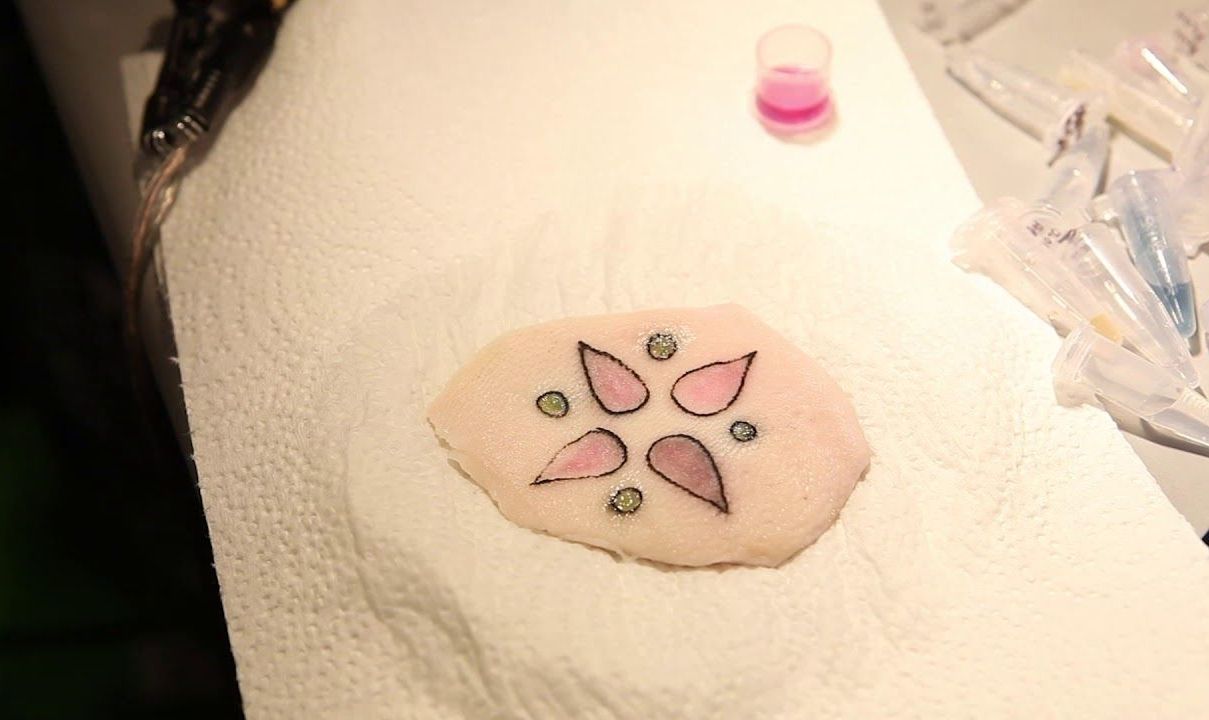Tattoos are fast becoming more than just a means of self-expression: soon they could be used for more practical applications, like tracking blood alcohol levels or turning the skin into a touchscreen. Now, a team from Harvard and MIT has developed a smart ink that could make for tattoos that monitor biometrics like glucose levels, and change color as a result.
Currently, bodily biomarkers can be monitored through a wardrobe-load of wearables, but they usually need batteries for power and wireless communication systems to transmit data. Using biosensitive inks (bio-inks), the Harvard and MIT design is self-contained, and since it works on simple chemical reactions it doesn’t require power for any data processing or transmission.
The inks interact with the body’s interstitial fluid, which transfers nutrients into cells and carries waste out of them. The fluid works closely with blood plasma, meaning it acts as a decent indicator of the chemical concentrations in the blood at a given time.
